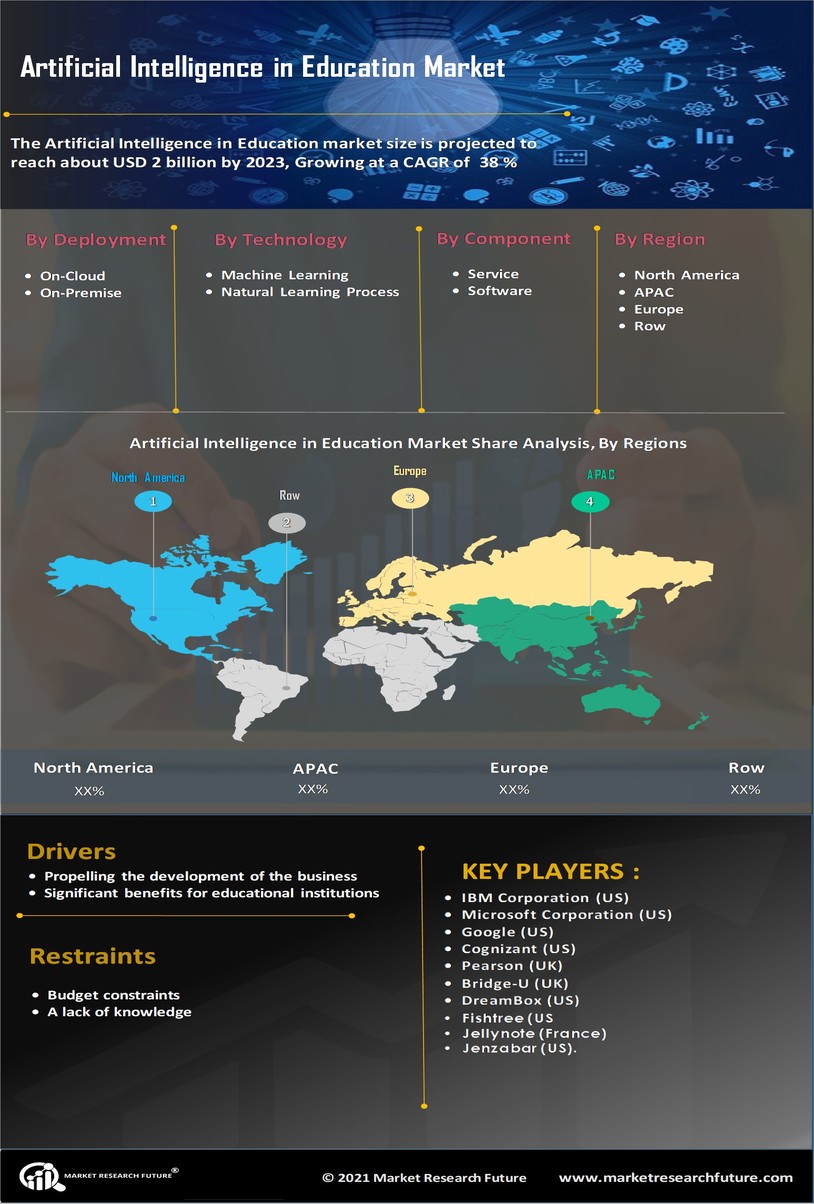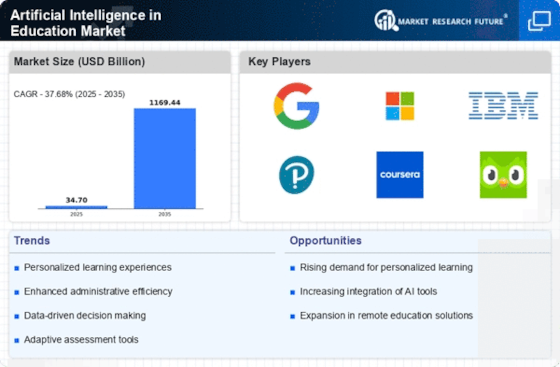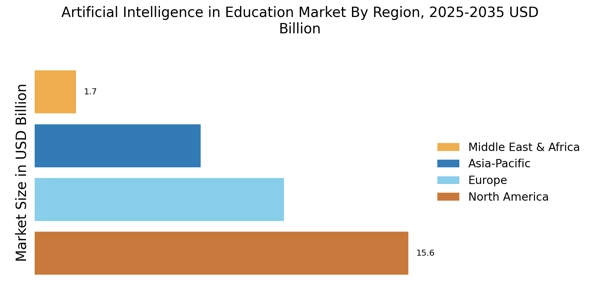Data-Driven Decision Making in Education
The Artificial Intelligence in Education Market is increasingly influenced by data-driven decision-making processes. Educational institutions are harnessing AI to analyze vast amounts of data, enabling them to make informed decisions regarding curriculum development, resource allocation, and student performance tracking. This trend is supported by the growing availability of educational data analytics tools, which provide insights that were previously unattainable. As institutions recognize the value of data in enhancing educational strategies, the market for AI-driven analytics solutions is projected to grow, potentially reaching a valuation of several billion dollars in the next few years.
Increased Demand for Personalized Learning
The Artificial Intelligence in Education Market is witnessing a surge in demand for personalized learning solutions. This trend is driven by the recognition that students have diverse learning styles and paces. AI technologies enable the customization of educational content, allowing for tailored learning experiences that cater to individual needs. According to recent data, the market for personalized learning solutions is projected to grow significantly, with estimates suggesting a compound annual growth rate of over 20% in the coming years. This growth indicates a shift towards more adaptive learning environments, where AI plays a crucial role in enhancing student engagement and improving educational outcomes.
Advancements in Intelligent Tutoring Systems
The Artificial Intelligence in Education Market is experiencing notable advancements in intelligent tutoring systems (ITS). These systems leverage AI algorithms to provide real-time feedback and support to learners, mimicking the benefits of one-on-one tutoring. Recent studies indicate that ITS can improve student performance by up to 30% in certain subjects. As educational institutions increasingly adopt these technologies, the market for intelligent tutoring systems is expected to expand. The integration of AI into tutoring systems not only enhances learning efficiency but also allows educators to focus on more complex teaching tasks, thereby transforming traditional educational methodologies.
Integration of AI in Administrative Processes
The Artificial Intelligence in Education Market is also seeing a significant integration of AI technologies in administrative processes. Educational institutions are adopting AI to streamline operations such as admissions, scheduling, and student services. This integration not only enhances operational efficiency but also reduces administrative burdens on staff, allowing them to focus on more strategic initiatives. Recent reports suggest that AI can reduce administrative costs by up to 30%, making it an attractive option for institutions looking to optimize their resources. As the demand for efficient administrative solutions grows, the market for AI applications in education administration is likely to expand.
Enhanced Learning Analytics and Assessment Tools
The Artificial Intelligence in Education Market is benefiting from the development of enhanced learning analytics and assessment tools. These tools utilize AI to provide educators with insights into student learning patterns and outcomes, facilitating more effective assessment strategies. By analyzing data from various sources, AI can identify areas where students struggle and suggest targeted interventions. This capability is particularly valuable in formative assessments, where timely feedback can significantly impact learning. As educational institutions increasingly prioritize data-driven assessments, the market for AI-powered analytics tools is expected to grow, reflecting a broader trend towards evidence-based educational practices.

















